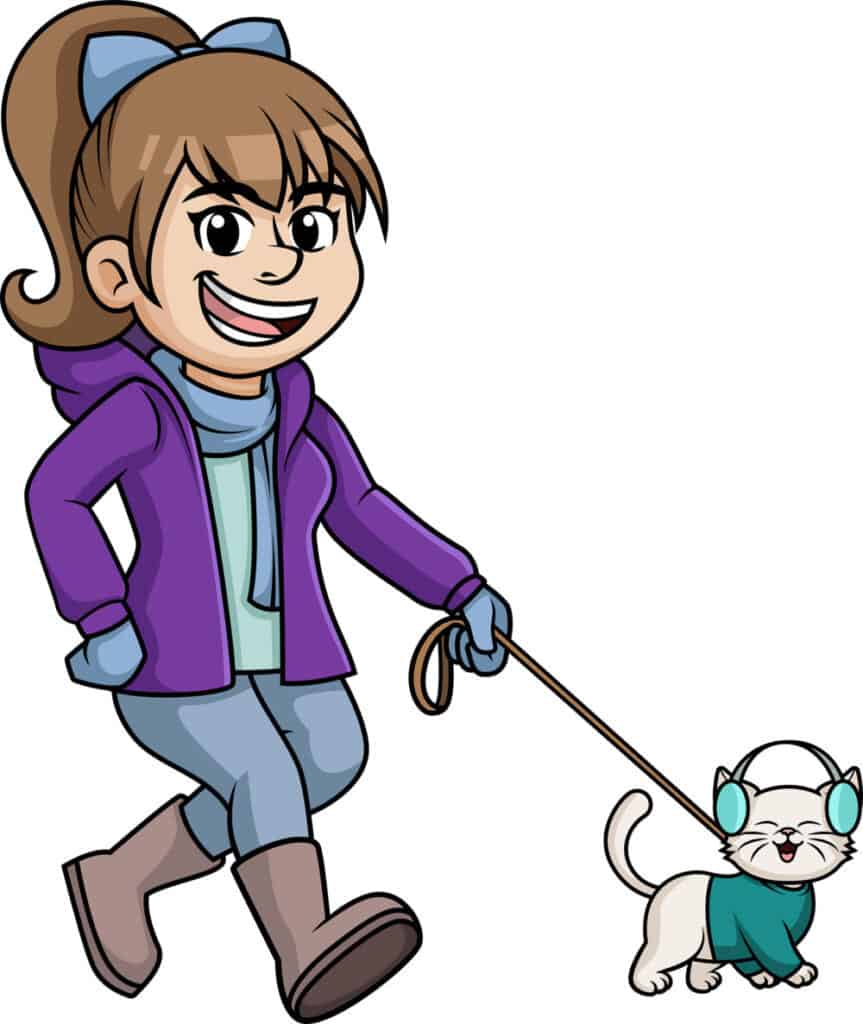
It is common for many pet owners to consider themselves to be parents of their pets. This has even evolved into a pet-grandparent relationship for some. Pet owners who call themselves pet parents have what they believe to be valid reasons for doing so by today’s standards; however, this does not make it okay.
Pet owners call themselves parents because they care for pets in similar ways parents do for children. Owners feed, house, teach ‘rules’, and nurse pets back from sickness. Yet, pets aren’t children and it’s important to distinguish between the two.
Many pet owners believe themselves to be parents of their pets. Some of the reasons they believe this are described in detail below, as well as explanation as to why this is detrimental, so continue reading and decide for yourself.
Contents
Pets Can Not Take Care of Themselves
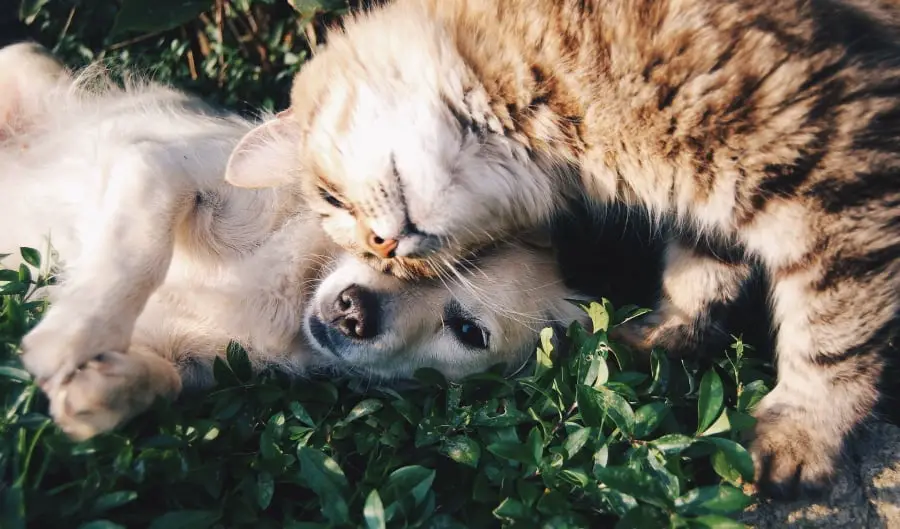
One of the strongest reasons pet owners call themselves parents is the fact that their pets can not care for themselves. Because of domestication, most dogs and cats are not able to fend for themselves and are therefore as helpless as human babies.
This hasn’t always been the case. In years past, animals were able to provide for themselves quite sufficiently. Dogs lived in packs to survive; as well, cats were able to hunt and get food as needed. However, cats and dogs today have little in common with their ancestors.
In his book, Domesticated: Evolution in a Man-Made World, Richard C. Francis, a science journalist with a PhD in neurobiology, speaks in layman’s terms about the evolution of today’s pets, and not necessarily in a positive view. To learn more, check out his Kindle edition from Amazon, here.
Yet even today, the desire to hunt is so strong for cats that despite domestication, they are the biggest threat to outdoor birds. Domesticated cats alone kill 2.4 billion birds in the United States every year! Much to the chagrin of avid bird watchers!
However, because the trend to bring pets into our homes has surged over the past decades, changing pets awareness and survival instincts, most have lost some abilities to live long outdoors, especially in light of the prevalence of automobiles.
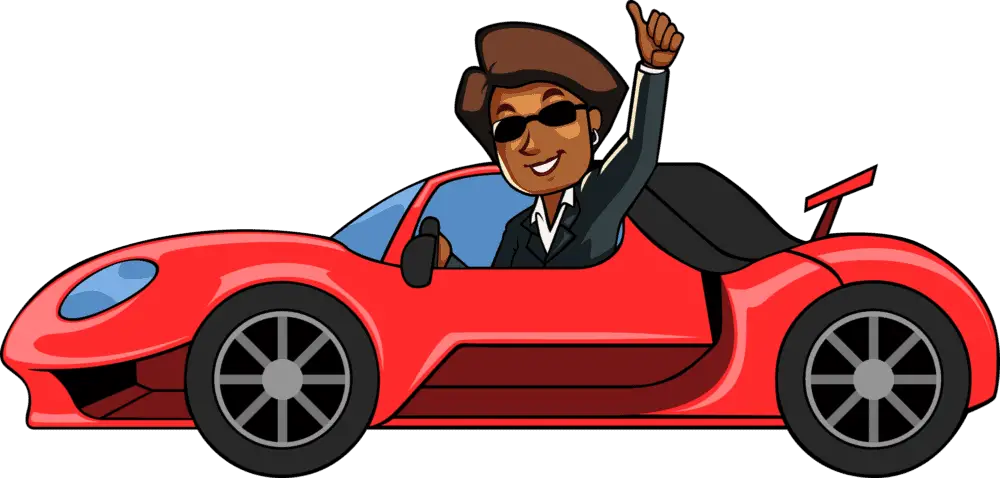
Some pet owners would argue that their pets are even more helpless than human children because they can not open doors or speak. It could even be thought that a dog or cat left on its own will not be able to get itself water, let alone food.
It’s not so surprising then that pet owners see their pets as helpless creatures that they have to care for, just as people care for their human children. But again, does this make it okay or right?
As Trusting as Children
Pets are often as trusting as children as well. They will go to anyone for love and affection. Because of this, they can easily be hurt. Their desire for food and comfort can also be the catalyst for a pet owner-pet relationship.
Just as a young child will follow a stranger with candy, a dog or cat will likely follow another human with a treat, especially if they have been living without regular food and water.
This helpless trustiness is one of the reasons that pet owners consider themselves parents. They must look out for the well-being of their pets.
Yet, this is how the relationship is muddled.
Pets Are Often Young When Owners First Get Them
Many pet owners get their pets when they are young–kittens or puppies. These owners then raise their pets up from when they are little to when they are adults, just as people raise their human children up from infants to when they are adults.
Because of this, many pet owners consider themselves to be parents of their pets, but this is generally the case for childless couples. They are the only person their pet knows from almost the time they open their eyes for the first time.
Pets often latch onto their owners and see them as the most important people in their lives. This latching onto their owners is extremely similar to what human children do to their parents when they are young.
Pet owners see their pets as innocents, much like parents of human children see their children. Yet, once couples have actual children, there is no comparison. Pets are pets; children are children.
Raising Pets
The process of raising a living creature up from infancy to adulthood in and of itself can be described as the process of parenthood.
Being in charge of a living creature’s well-being from the time it is young to when it grows old is quite a responsibility. Because of this, many pet owners consider themselves to be parents of their dogs and cats.
This process of raising their pets from infancy to adulthood is a similar process to what parents go through with their human children. This idea becomes problematic when adults use animals as a substitute or surrogate for having children. Even though one might mimic the other, it is not the same kind of relationship.
It used to be that pet owners recognized the difference between raising a human and raising a pet. However, as it has become more common for adults to forego actual parenthood, more and more pet owners think that the responsibility of raising a pet warrants the use of the term “parent.”
They Teach Their Pets Right From Wrong
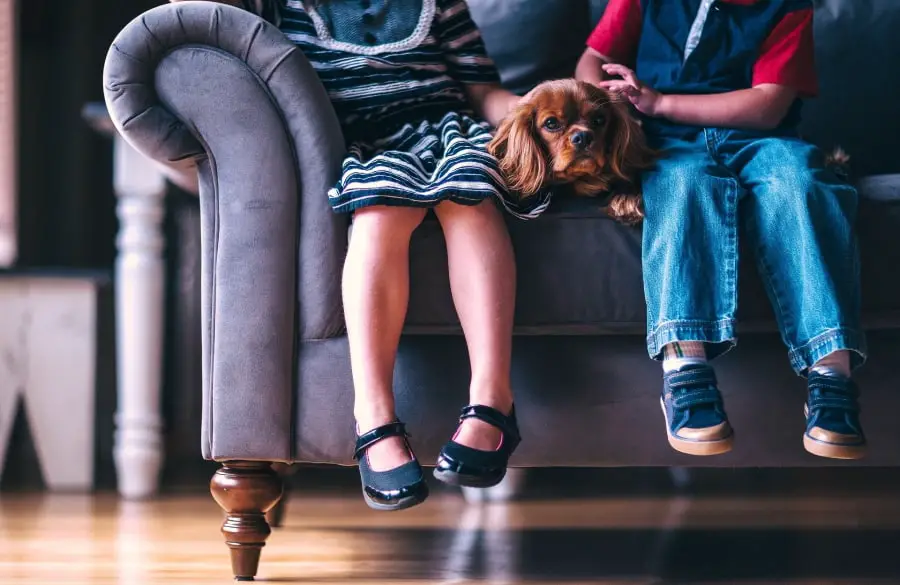
Parents of human children teach their kids right from wrong. Many pet owners argue that they do the same with their pets. They may point out that they teach their dogs manners, where to go to the bathroom, where/when they can eat, and much more.
Pet owners also discipline their pets much as parents do with their human children.
Because a pet owner is in charge of teaching their pet how to behave, many owners consider themselves to be their pets’ parents.
Some might even argue that being in charge of setting ground rules and boundaries with a pet is similar to what parents do with young children.
I’ve even watched an episode on House Hunters where one adult was a stay-at-home-mom to her two dogs.
However, it must be understood that teaching human children right from wrong is a much larger task than teaching an animal to sit or not jump on furniture. If you don’t understand this, then I say to you, ‘you obviously don’t have children!’
They Care for Their Pets When Their Pets Are Sick
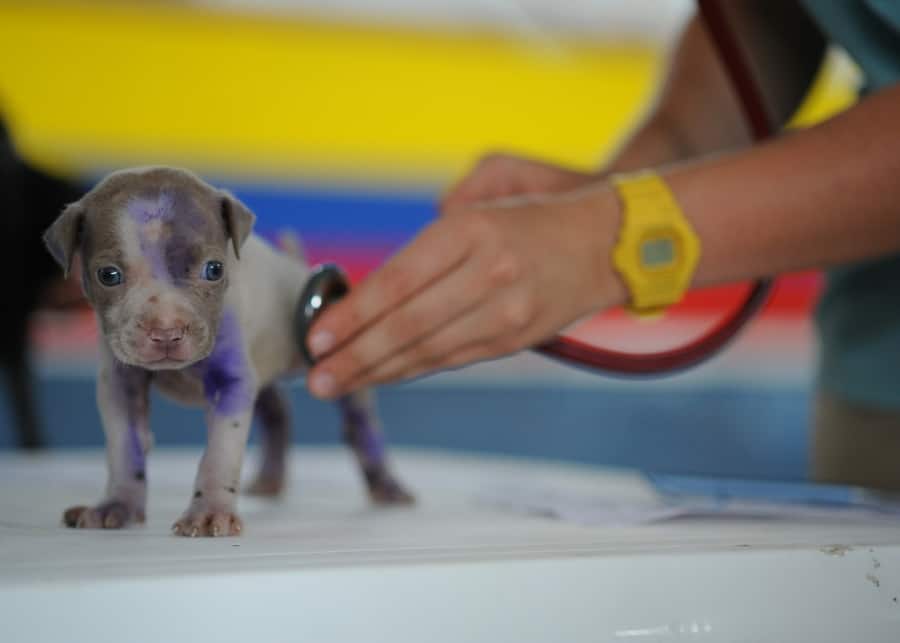
Another task that human parents do is take care of their children when they are sick. Pet owners do the same for their pets. They stay up with their pets when they do not feel well. They take their dogs and cats to the vet when necessary.
If a pet hurts itself, its owner takes care of it, just as a parent would a child. Pet owners change their pet’s food when they need to for medical reasons. They also give their pets medications when it is necessary.
Vet Hospitals
In year’s past, when pets got sick, owners took care of them at home. If a pet didn’t recover, most owners prepared for the pets inevitable passing.
When I grew up, it was more common for pet owners to take their animals to a local vet office for their pet to be checked out if the animal became ill and didn’t recover in a timely fashion. It was also more common for pets to have seen the vet for basic preventative shots, most generally for the protection of the owners.
Veterinarians would either decide if the pet illness warranted medication, or if, unfortunately, if the pet had an illness beyond reasonable medication, the owner was advised to take the animal home and hope for the best, or the vet would offer to put the animal ‘to sleep.’
Then, along came the change from vet office to vet hospital. This alteration meant much more than a name change. Suddenly, animal care went beyond what was previously provided and moved into human care equivalent. Just as humans would go to hospitals to receive as much care as necessary and possible for recovery, so were animals now.
Pet Insurance
Twenty years ago it was unheard of to purchase pet insurance. In fact it probably was near impossible to find any insurance carrier who provided insurance for animals, other than pure bred race horses worth millions of dollars.
Now it’s a common practice for vet ‘hospitals’ to ask for insurance when you first bring your pet in for vaccinations (that idea of vaccinations alludes to pets being considered like children who receive vaccinations when little).
I remember a co-worker once asking me if I had health insurance for my dog. This was about five years ago and the first I’d encountered the concept. I looked at her like she’d asked me if I’d ever visited the moon and said, ‘uh, no.’
She probed further, expressing concern and asked, ‘why not?’ I replied, ‘Because I have children.’
I still don’t think she understood my point of view. She of course didn’t have children; she had a Papillon.
Just as a parent takes care of every aspect of their child’s health, it has now become common expectation for a pet owner to do the same for their cat or dog’s health.
They Mourn Their Pets When Their Pets Pass
Another reason that pet owners call themselves parents is that they mourn the loss of their pet quite emotionally. Like parents who mourn children who pass unexpectedly or untimely, pet owners often feel extreme loss when a pet dies.
Some studies have even shown that psychologically speaking, the loss of a pet affects the human brain in much the same way as the loss of a child.
Some studies even show that the loss of a pet can be harder for a person to get over than the loss of an adult child. Experts suggest that this is because the pet owner is with the pet on a daily basis, so their loss is more acute. I would go so far as to say that even if this is true, it doesn’t mean that it should be normalized.
Modern Society Sees Pets as People
Just look at Hollywood movies. The pets are always kinder, smarter, and more ‘human’ than humans. Hollywood knows how to use dogs to pull at our heart strings! But just because puppies are cute, doesn’t mean they think or act like babies!
Pets Are Not Human
Pet owners who consider themselves to be parents deep down know that their pets are not human. I must believe that they know that the relationship they have with their pets is not exactly the same as that of a human parent with a human child.
This is backed up by science. In a study done by researchers at the University of Nevada, Las Vegas, it was noted that ‘pet parents’ really do understand the difference between actual children and pets. The problem lies in giving places reserved for children in a family to these pets in action, usually not in a lack of understanding.
However, I can concede that owners feel strong emotional connections with their pets, for I’ve had many pets over my lifetime and cried lots of tears when they were hurt or died. But…that doesn’t mean it’s the same feeling I have for my four children, especially if they are sick, hurt, or worse.
Commercial Trend to See Pets as Human
Many Hollywood movies, commercials, advertising and so on has moved toward pets as people. The Secret Life of Pets is just one example of the push to anthropomorphize animals.
In this movie, pets are seen as brothers to each other, and in Part 2, to the adults’ human child. This depiction teaches children that pets are human, just like them.
Because of the commercial trend to elevate pet status, and the movement in recent years to forego parenthood, the pet and owner relationship has become cloudy to which most owners can only describe as parent-child, even though deep down they would admit it isn’t the same.
This quest for something deeper is what has led pet owners to describe their relationship with their ‘fur babies’ in words other than ‘owner’.
Conclusion
The relationship between an owner and his or her pet is quite special; so special that many pet owners call themselves parents of their pets. Pet owners have numerous reasons for thinking this way.
Though most pet owners who describe themselves as parents to four-legged children believe their relationship with their pets is special, deep down most would also admit it is not identical to that of parent and human child.
Although using the term parent simply expresses the unique connection pet owners have with their pets, it is not a healthy thing to do and shouldn’t be normalized. And though it’s true that dogs and cats are more than just possessions, dogs and cats are pets, and children are children. Keeping these boundaries in no way minimizes the specialness of our pets.
Sources
https://iheartdogs.com/do-pet-owners-have-the-right-to-call-themselves-parents/
https://www.psychologytoday.com/us/blog/here-there-and-everywhere/201905/coping-the-loss-your-pet
